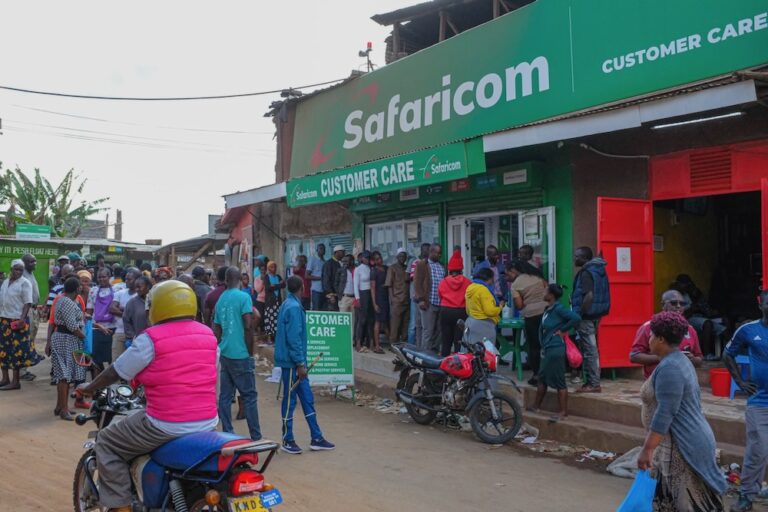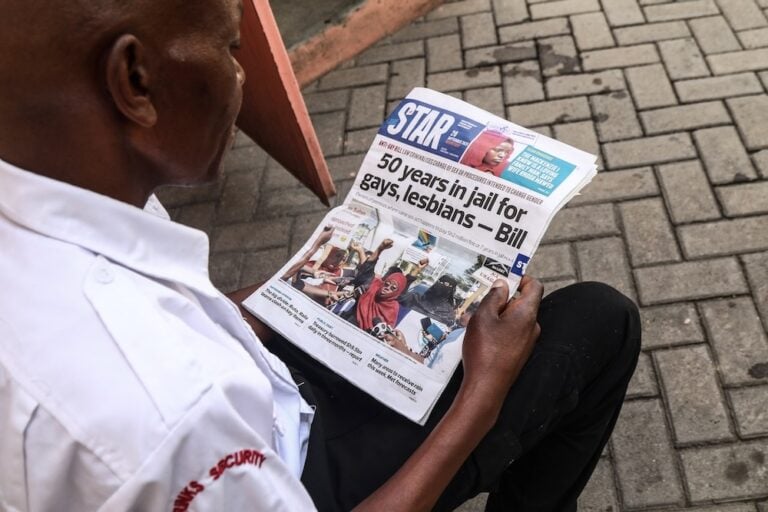(RSF/IFEX) – RSF has voiced concern over the libel charge that was brought against leading investigative journalist Kamau Ngotho, of “The Standard”, on 13 January 2005. The legal action has triggered an outcry in Kenya, a country that normally respects press freedom. “We will never cease to protest against governments that try to sanction defamation […]
(RSF/IFEX) – RSF has voiced concern over the libel charge that was brought against leading investigative journalist Kamau Ngotho, of “The Standard”, on 13 January 2005. The legal action has triggered an outcry in Kenya, a country that normally respects press freedom.
“We will never cease to protest against governments that try to sanction defamation with prison sentences, but the enthusiasm displayed by Kenyan authorities in using an exceptional procedure to bring charges against ‘The Standard’ is particularly worrying,” RSF said.
“If the persons affected wish to issue a denial or qualify what has been published by the newspaper, they have ways to proceed other than bringing legal action, especially if it could result in a journalist receiving a prison sentence,” the organisation added.
RSF welcomed the joint protest statement issued by several foreign embassies in Nairobi. “We urge influential diplomatic representations to take this kind of initiative more often in countries where press freedom is being trampled on, as it is today in Kenya, to our great surprise.”
The clash between the press and authorities began on 11 January, when “The Standard” deputy editor Kwamchetsi Makokha was summoned and questioned for four hours by Nairobi’s Criminal Investigation Department as a result of a complaint filed by businessman John Macharia and others over a story by Ngotho that appeared in the paper’s 8 January issue, entitled, “Mr. Moneybags: big money games that run Kenya’s politics”.
The story described the small economic elite which, despite the recent change in government, continues to get rich as a result of its network of friendships within the administration. The report warned that conflicts of interest could arise from the close links between some of President Mwai Kibaki’s aides and leading Kenyan companies.
Makokha was released after being questioned. His interrogation was ordered under Article 194 of the Criminal Code, concerning “criminal defamation”, which dates back to colonial times and has never been used since the country’s independence in 1963.
Nine foreign embassies in Nairobi, including those of the United States, Britain, Germany and Canada, quickly issued a joint statement voicing outrage, accusing the authorities of breaking “one of their most important electoral promises,” namely to guarantee press freedom, and urging President Kibaki to combat corruption rather than try to intimidate the media.
Maina Kiai, the head of Kenya’s National Commission on Human Rights, said criminal libel was “a tactic used by dictatorships and repressive regimes to intimidate and gag the press.”
The 13 January 2005 issue of “The Standard” carried a number of corrections to the article, along with apologies to “all persons concerned” for the errors. Nonetheless, that same day, Ngotho was formally charged with “publishing a defamatory article” after he presented himself to the authorities. Previously, a warrant for his arrest was issued. The journalist was freed on bail of 20,000 shillings (approx. US$255; 200 euros). A hearing has been set for 17 January. If convicted, Ngotho faces up to four years in prison.


